Since 8th grade, Vu Duc Minh, currently a student at Nguyen Thi Minh Khai High School (HCMC), has started learning Chinese because he loves the culture and art of this country. Now, in 11th grade, Minh and his family have "decided" to study abroad in China after a long period of consideration. "China is developing very quickly, its education is increasingly recognized and the cost is also affordable," Minh shared.
STUDYING IN CHINA IS BLOOMING
Aiming to study biotechnology at some top universities such as Beijing Technology, East China Normal University, Fudan University..., Minh said he is preparing for the HSK level 5 exam (an international Chinese language certificate with 6 levels, with level 6 being the highest) and is about to take the IELTS exam to increase his chances of admission.
Duc Minh is one of tens of thousands of people who have been pursuing their dream of studying abroad in the country of a billion people in recent years. From 11,300 people studying abroad in China in 2020, by 2023 Vietnam had recorded 23,500 people, double the number before the Covid-19 pandemic broke out, according to data from the Chinese Embassy in Vietnam.
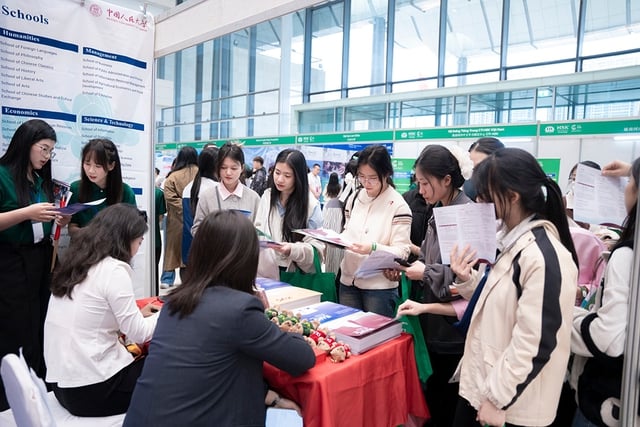
Representatives of Renmin University of China, one of the leading universities in the country of a billion people, advise Vietnamese students at a study abroad event held in March 2025.
PHOTO: CTI HSK
Mr. Daniel Zheng, CEO of HOPE - a study abroad consulting company in China, shared that in addition to recruiting Chinese students for foreign universities, his company has recently started recruiting foreigners for leading universities in the country of a billion people such as Fudan and Donghua. This comes from the need to internationalize and diversify the recruitment sources of schools, according to Mr. Zheng.
"To attract students, universities not only offer generous scholarship programs for excellent students, but also provide many opportunities for students to experience in advance whether they like studying in China or not, such as opening summer camps. In general, most Chinese universities are very welcoming to international students from all over the world , and we really hope to have the opportunity to come to Vietnam to recruit students," added Mr. Daniel Zheng.
REASONS WHY THE NUMBER OF VIETNAMESE STUDENTS CHOOSE TO STUDY IN CHINA
As one of the pioneers in promoting the Chinese study abroad market in Vietnam, Dr. Nguyen Quoc Tu, Chairman of the Board of Directors of QTEDU Group Corporation ( Hanoi ) and Head of the Foreign Language Department at Dong Do University, commented: China has 4 factors that attract international students. The first is the moderate cost, ranging from 100 - 300 million VND per year, including tuition and living expenses.
Second, the quality of university education is increasing; the number of Chinese schools ranked in the top 100 and 500 best schools in the world is increasing every year. Third, the living environment such as culture and weather have many similarities with Vietnam, while security is always guaranteed. "Finally, Chinese scholarships have the best treatment in the world and the number of awards is quite generous," said Dr. Nguyen Quoc Tu.
Sharing more about scholarship opportunities, Mr. Tu said that in addition to government scholarships such as the Chinese Government Scholarship (CSC) and the International Chinese Teacher Scholarship (CIS), candidates can also look for local scholarships such as provincial scholarships, city scholarships, school scholarships and principal scholarships. The value of these scholarships ranges from full to partial, creating many opportunities for Vietnamese people.
Chinese universities are also "following international standards," according to Mr. Tu, and this is clearly demonstrated by the fact that since 2024, the country has begun requiring some groups of international students to take a nationwide entrance exam.
"After 10 years, the Chinese study abroad market has changed a lot. From little information and almost no study abroad companies, now related services are diverse, transparent, popular and the requirements have also increased a lot compared to before," Dr. Tu shared.
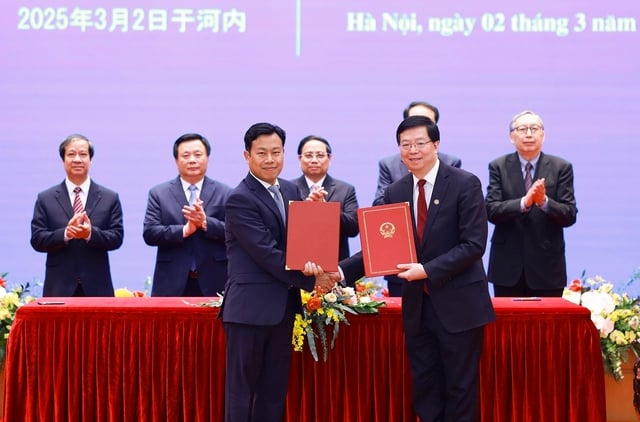
Hanoi National University signed memorandums of understanding with Tsinghua University in March.
Photo: Hanoi National University
M EXPANDING COOPERATION WITH CHINESE UNIVERSITIES
Another special mark in the educational relationship between Vietnam and China is the cooperation between universities. On April 14, Hanoi National University and Tsinghua University announced that they had signed a memorandum of understanding on the establishment of the "Vietnam - China University Network" for the first time in Vietnam. Previously, universities of the two countries also carried out a variety of cooperation activities such as exchanging lecturers and students; coordinating training and research...
According to Dr. Nguyen Quoc Tu, another cooperation activity that many Chinese partners are also interested in is training cooperation with Vietnamese universities according to the 2+2 model (2 years of training in Vietnam, 2 years in China), 1+3, 3+1. In addition, Chinese universities are also cooperating with vocational schools, aiming to train human resources who are both good at Chinese and good at their profession to meet the needs of businesses.
"This is a new training orientation that many Chinese universities are aiming for, combining Chinese language teaching with majors, instead of just stopping at teaching Chinese as before," said Dr. Tu.
Regarding research cooperation, Dr. Tu said that currently, a form favored by schools is organizing scientific conferences so that scholars from both countries can come to share knowledge and publish articles in scientific journals, according to Mr. Tu.
In addition, according to a survey conducted by Dr. Tu, in 2024, there will be about 53 universities and colleges offering Chinese language training or having Chinese language departments. The number of students enrolling in these majors often fluctuates from hundreds to thousands with "quite high" benchmark scores, and this also reflects the increasing demand for learning Chinese, according to Dr. Tu.
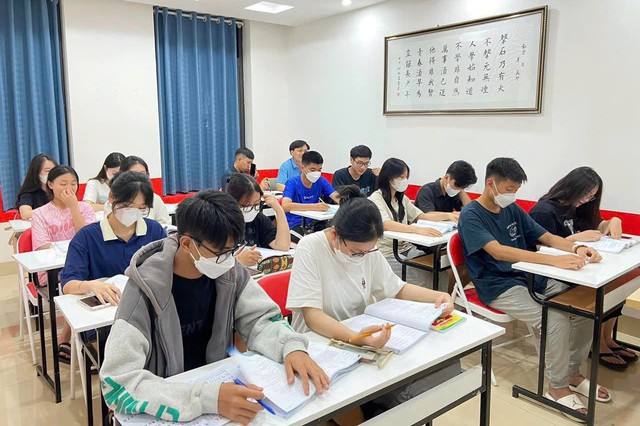
Students in a Chinese class
Photo: NVCC
CHINESE LEARNING BOOM
Currently studying professional communication at RMIT University Vietnam, Lam Vinh Hong said he started learning Chinese 6 months ago, the main purpose is to help himself gain "more weight" in the eyes of employers, especially in an international working environment.
Mr. Truong Quang Nhat Dang, founder of the Zhang Laoshi Chinese School, an educational organization based in Ho Chi Minh City, said that more and more young people are enrolling to learn Chinese to increase their competitiveness at work. "Exploding" is Mr. Dang's description of the Chinese teaching and learning market in 2025, compared to the period 10 years ago.
"For example, in the HSK exam, 10 years ago there were only about 2 locations, each side only held it once a year, but now the number has increased to nearly 10 test locations and the exam is held every month. Thus, there are currently about 120 exam sessions/year in Vietnam, an increase of dozens of times," Mr. Dang shared and added that some forums for learning Chinese as well as HSK exam preparation are currently "not inferior to English learning forums".
Experience at China's top university
Ms. Bui Ngoc Ha was admitted to Tsinghua University and Peking University - two schools ranked 1st and 2nd in China and 12th and 13th in the world, respectively, according to the 2025 rankings of the Times Higher Education (UK). Currently studying for a master's degree at Tsinghua University, Ms. Ha said that in recent years, more and more Vietnamese people have come to study at top Chinese schools, from full-time programs to exchange and language courses.
Sharing more about his experience studying at Tsinghua University, the owner of social media channels about studying abroad in China, which has attracted more than 1 million followers, shared: "My first impression was overwhelming, because the school is like a miniature world with a very large campus with many facilities from banks, supermarkets, cafeterias to kindergartens, high schools, universities and even training facilities for retirees."
Giving advice to Vietnamese candidates, Ms. Ha said that they need to clarify and demonstrate the mutually beneficial cooperation relationship between themselves and the school, in addition to preparing a good personal profile in accordance with the admission regulations. In addition, candidates should also prove themselves to be a comprehensive development factor, not just having academic strengths, and should share about the contributions they have made to the community and society.
Source: https://thanhnien.vn/hoc-sinh-viet-nam-them-co-hoi-hoc-tap-o-trung-quoc-185250415194730614.htm


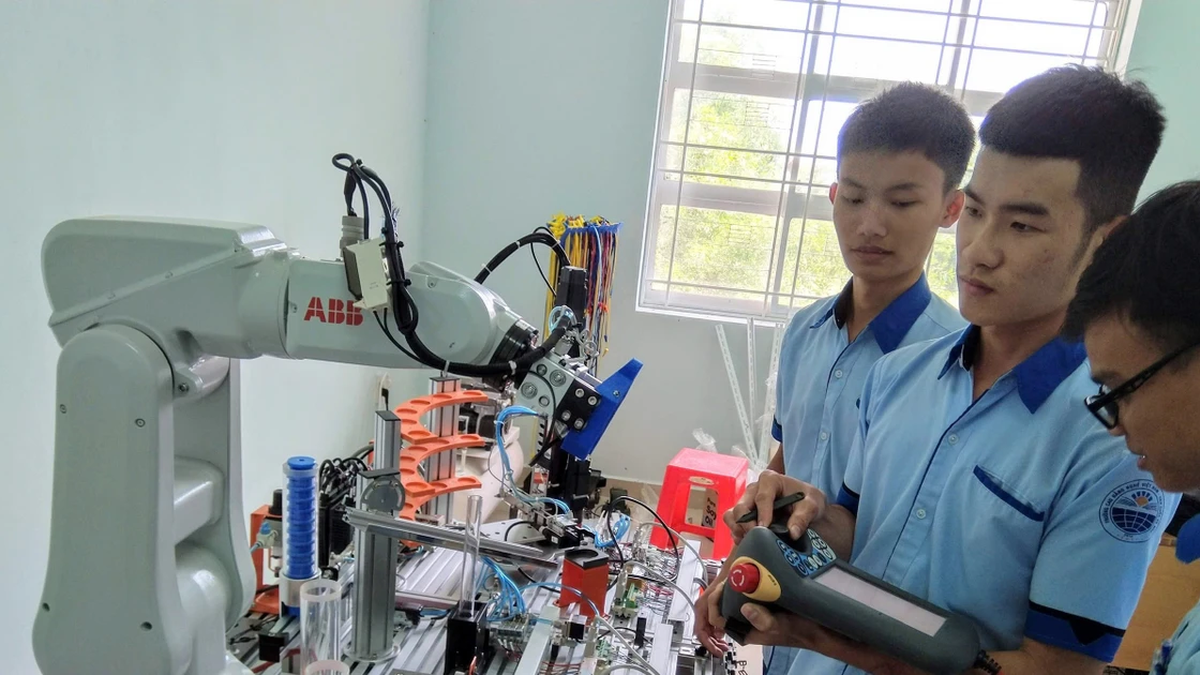
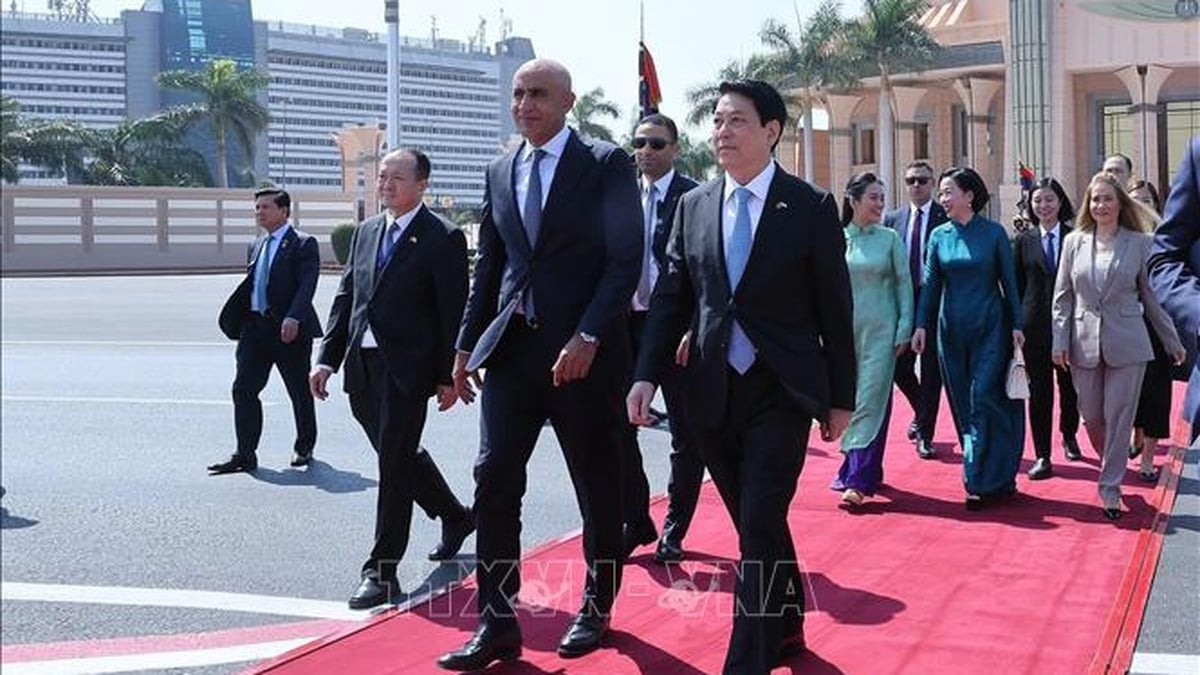







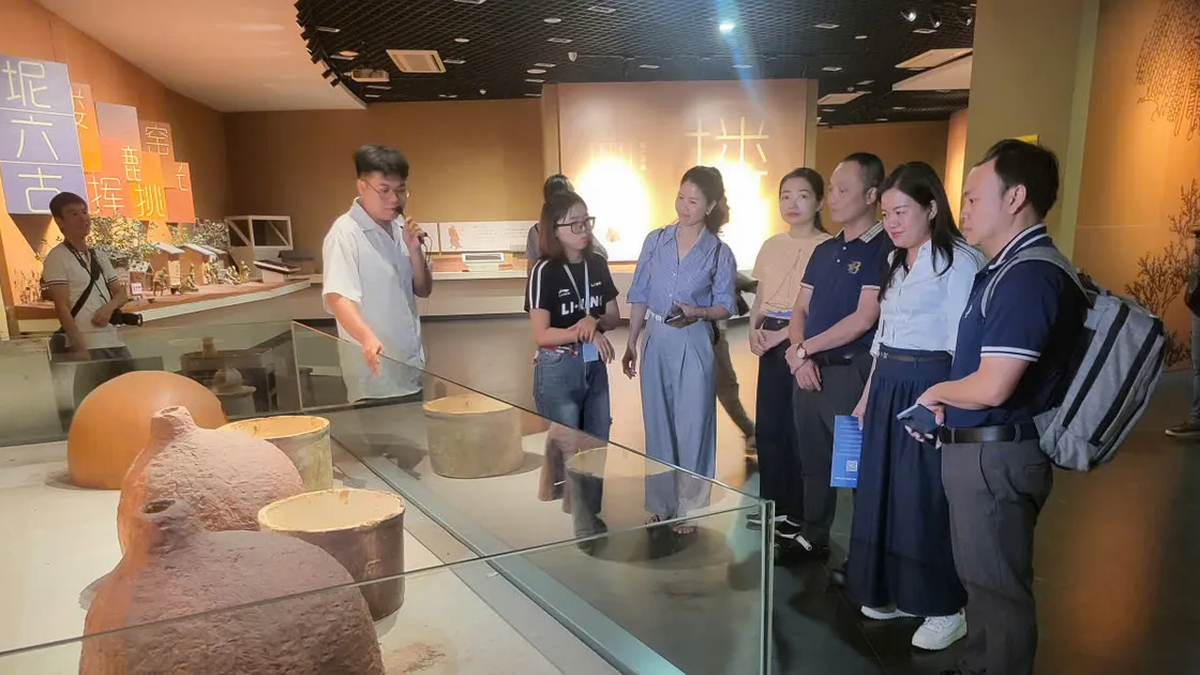












![[Photo] Nghe An: Provincial Road 543D seriously eroded due to floods](https://vphoto.vietnam.vn/thumb/1200x675/vietnam/resource/IMAGE/2025/8/5/5759d3837c26428799f6d929fa274493)





![[Photo] Discover the "wonder" under the sea of Gia Lai](https://vphoto.vietnam.vn/thumb/1200x675/vietnam/resource/IMAGE/2025/8/6/befd4a58bb1245419e86ebe353525f97)

























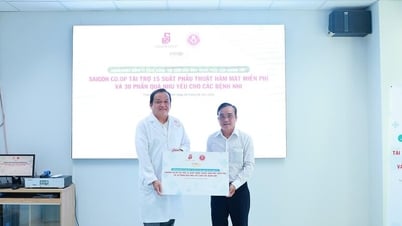







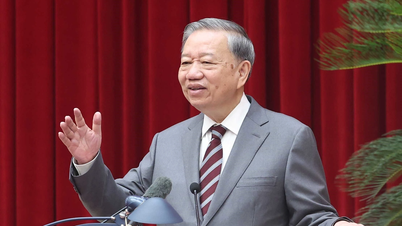







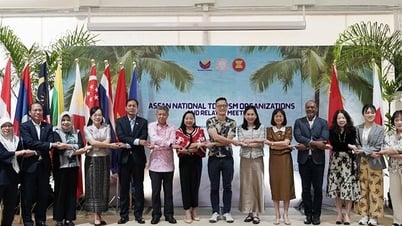


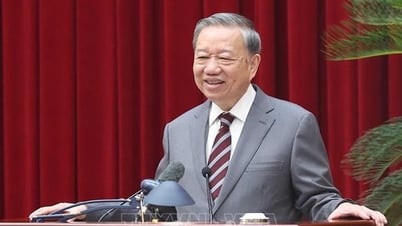





















Comment (0)